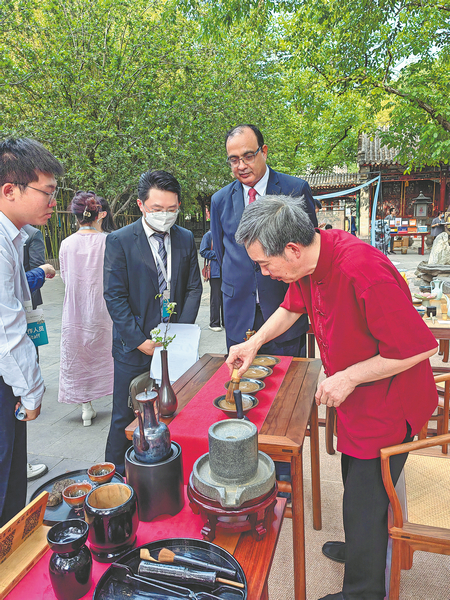

"This event carries particular significance. Our focus in the past was primarily on promoting tea culture domestically, but this event is targeted worldwide," Zhang says. "It offers an authentic portrayal of Chinese culture, in all its vastness and depth."
On this year's International Tea Day, an annual celebration falling on May 21, the ministry brought together organizations from 16 provincial-level administrative regions, 19 Chinese embassies and consulates, 38 China cultural centers and five tourism offices to put on the salon in 41 countries, as well as at the headquarters of the United Nations and UNESCO.
Exhibitions, screenings, performances and demonstrations were organized, allowing visitors to gain a fuller understanding of Chinese tea culture.
Apart from the Yaji Cultural Salon, the ministry has launched another event series, titled Sharing Intangible Cultural Heritage, centered on the promotion of national preservation projects related to tea culture.
From May 19 to 22, the gathering was held in Fuzhou, capital of Fujian, co-hosted by the ministry and the provincial government.
In 2022, traditional tea processing techniques and their associated social practices in China were added to UNESCO's Representative List of the Intangible Cultural Heritage of Humanity.
The event series was first launched in December in celebration of the additions to the UNESCO list. Fifteen provinces, autonomous regions and municipalities that had contributed to the drive unveiled demonstrations to highlight important aspects of tea culture.
"This year, we further enriched the content, innovated the format, and expanded the scale of the activities," said Li Xiaosong, deputy director-general of the department of intangible cultural heritage at the ministry, at a news conference on May 16.
According to Li, more than 130 tea-related intangible cultural heritage events were organized, constituting a comprehensive display of recent achievements in the preservation and promotion of tea culture.